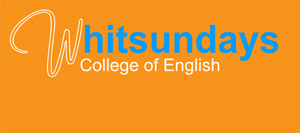
International Secondary School Bridging Program
Content Overview
The International Secondary School Bridging Program is a course that prepares students to be able to improve English Language and study skills in preparation for entry to Australian high schools. The course focuses on the four macro skills of Reading, Listening, Writing, and Speaking with particular emphasis on the associated and appropriate grammar and vocabulary. The course starts with the level CEFR A2, and the final level (Upper-Intermediate) assists students to reach CEFR B1 equivalent to the IELTS score of 5.5. Through this course, students will develop language skills and cultural awareness based on real-life theme activities helping students to gain confidence and competence for studying in Australian high schools.
CRICOS Provider Code: 048123D (Non-Award program)
Duration: Up to 48 weeks
Study hours per week: 25 hours
Speaking
Listening
Reading
Writing
Grammar
Face-to-face in class mode
a. The formative and summative assessments will be conducted on afortnightly basis.
b. Students will need to participate a minimum of one summative assessment per level.
c. All results will be recorded on the Academic Progress Record Sheet.
d. Students may ask and are permitted to see the results and details written on the Academic Progress Record Sheet.
e. Teachers will provide feedback after the assessment is conducted and prior to the next assessment.
f. The duration of the assessment varies depending on the level of the course.
g. The methods below will be used for assessments:
| Assessment | Methodology | Duration |
| Speaking | Role-play, Q&A, a presentation, a talk or have a short discussion | 10 seconds to 2 minutes |
| Listening | Answer from conversations/discussion/stories/interviews/lectures | 5 minutes to 15 minutes |
| Writing | Writestories/reports/articles/emails/letters/reviews/instructions/ descriptions/leaflets/biographies/presentations as per the given instructions | 20 minutes to 40 minutes |
| Reading | Find answers from given stories/reports/articles/emails/letters/reviews/ instructions/descriptions | 20 minutes to 40 minutes |
| Grammar & Vocabulary | Quizzes | 30 minutes to 1 hour |
Students will be able to produce outcomes of CEFR A2 to B1 within the level of IELTS band of 3.5 to 5.5 as per below.
Level | Elementary | Pre-Intermediate | Intermediate | Upper-Intermediate | |
IELTS | 3.5 – 4.0 | 4.0 – 4.5 | 4.5 – 5.0 | 5.0 – 5.5 | |
CEFR | A2 (CEFR Descriptor) | B1 (CEFR Descriptor) | |||
Listening | I can understand phrases and the highest frequency vocabulary related to areas of most immediate personal relevance (e.g. very basic personal and | I can understand the main points of clear standard speech on familiar matters regularly encountered in work, school, leisure, etc. I can understand the main | |||
Level | Elementary | Pre-Intermediate | Intermediate | Upper-Intermediate | |
IELTS | 3.5 – 4.0 | 4.0 – 4.5 | 4.5 – 5.0 | 5.0 – 5.5 | |
CEFR | A2 (CEFR Descriptor) | B1 (CEFR Descriptor) | |||
| family information, shopping, local area, employment). I can catch the main point in short, clear, simple messages and announcements. | point of many radio or TV programmes on current affairs or topics of personal or professional interest when the delivery is relatively slow and clear. | |||
Reading | I can read very short, simple texts. I can find specific, predictable information in simple everyday material such as advertisements, prospectuses, menus and timetables and I can understand short simple personal letters. | I can understand texts that consist mainly of high frequency every day or job-related language. I can understand the description of events, feelings and wishes in personal letters. | |||
Spoken Interaction | I can communicate in simple and routine tasks requiring a simple and direct exchange of information on familiar topics and activities. I can handle very short social exchanges, even though I can’t usually understand enough to keep the conversation going myself. | I can deal with most situations likely to arise whilst travelling in an area where the language is spoken. I can enter unprepared into conversation on topics that are familiar, of personal interest or pertinent to everyday life (e.g. family, hobbies, work, travel and current events). | |||
Spoken Production | I can use a series of phrases and sentences to describe in simple terms my family and other people, living conditions, my educational background and my present or most recent job. | I can connect phrases in a simple way in order to describe experiences and events, my dreams, hopes and ambitions. I can briefly give reasons and explanations for opinions and plans. I can narrate a story or relate the plot of a book or film and describe my reactions. | |||
Writing | I can write short, simple notes and messages relating to matters in areas of immediate needs. I can write a very simple personal letter, for example thanking someone for something. | I can write simple connected text on topics which are familiar or of personal interest. I can write personal letters describing experiences and impressions. | |||
Contact
For any inquiries please email
admission@wce.edu.au

